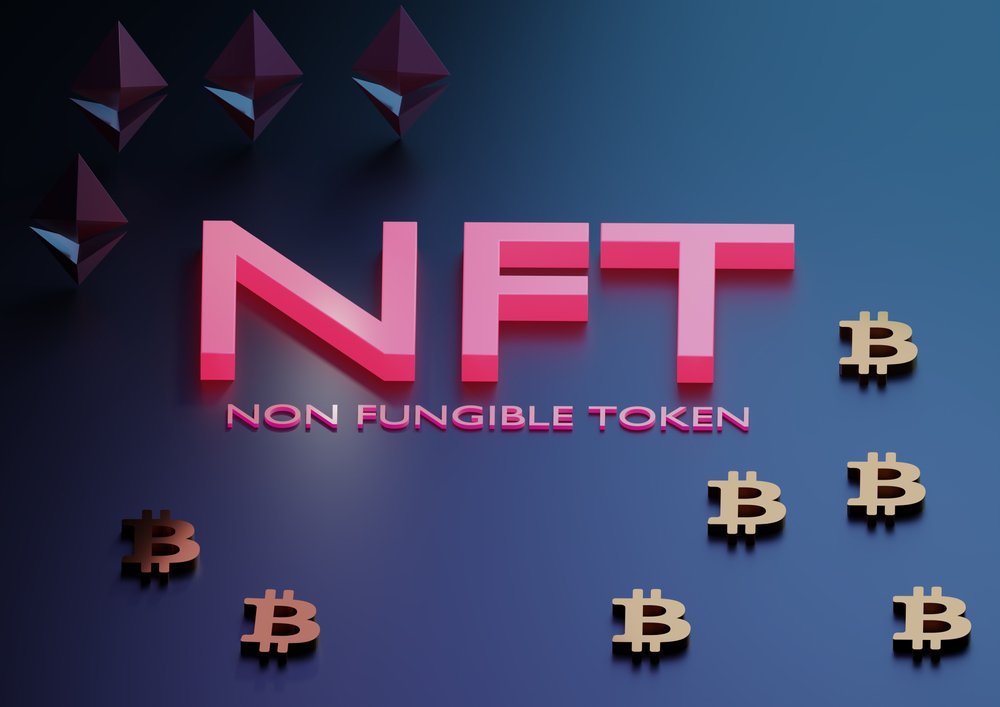By Anthony Diosdi
The popularity of Non Fungible Tokens (“NFTs) has spiked in the past couple of months. NFTs were just featured on an episode of Saturday Night Live. Recently, the New York Times published an article entitled “Why Did Someone Pay $560,000 for a Picture of My Column?” The article discusses how a reporter wrote a column about NFTs, turned the column itself into a NFT, and put it up for auction. The winning bid for the column was about $560,000. So what is an NFT? To understand what an NFT is, you must understand the basics about digital currencies.
Digital current is money. There are a number of different digital currencies. They include bitcoin, ethereum, and dogecoin. Digital currencies are also called cryptocurrency. This is because cryptocurrency can be held in an online account, a USB drive, or in a digital wallet app. The value of these currencies varies depending on online exchange such as Coinbase. Because cryptocurrencies are digital, it is extremely difficult to counterfeit. Cryptocurrency currency is also very difficult to hack because every digital transaction is recorded across a huge decentralized network of ledgers.The good news is for people that hold cryptocurrency is that digital currency has been steadily rising over the past several years. There are other online assets besides digital currency. There are video gains, digital artwork, logos, animation, and video clips. Although copyright law protects these assets, it can be pretty easy to pirate digital assets without legal repercussions.
The concept of an NFT is to marry the world of digital assets with the security of cryptocurrency. An NFT is a digital asset with a certification of authenticity which is protected by copyright law. When one purchases an NFT, that individual is acquiring a hacker-resistant, public proof of ownership of the digital asset. Now since we know a little more about NFTs, it’s time for us to discuss how they are taxed. How an NFT is taxed depends on two factors. First, whether or not an individual created and sold the NFT. Second, whether or not an individual bought and sold the NFT as an investment.
Overview of the Tax Liability for a Creator of an NFT
A creator of an NFT is taxed at the time he or she sells an NFT. For example, let’s assume Bob creates an NFT. Let’s also assume that Bob sold the NFT for one Ether (ETH). Today’s exchange rate for one ETH is $1,976.59. In this case, Bob will report $1,976.59 of ordinary income associated with the sale of the NFT. However, Bob may be able to deduct any business related expenses associated with the creation and sale of the NFT to reduce the tax consequences of the sale.
Overview of the Tax Liability for NFT Investors
Some investors are betting big on the NFT art. Others are acquiring NFTs just for publicity or bragging rights. Whatever the reason for investing in an NFT, the tax consequences associated with buying and selling an NFT is similar to trading digital currencies. Like cryptocurrency, the buying and selling of an NFT creates a taxable profit to the investor. Investors are subject to short or long term capital gains taxes, plus 3.8 percent Medicare Tax, plus applicable state and local taxes.
For example, let’s assume that on April 1, 2021, Linda acquired an NFT worth $3,953.18 (2 ETH). Let’s also assume Linda used 2 ETH to buy the NFT. However, Linda acquired the two ETH used to purchase the NFT a number of years ago. At that time, the 2 ETHs were worth $400. When Linda purchases the NFT, she would incur long-term capital gains on $3,553.18 ($3,953.- $400 = $3,953). Since Linda held the 2 ETH for more than one year, she would be taxed at favorable long-term capital gain rates. Linda’s cost basis in the NFT would be $3,553.18.
If Linda were to sell this NFT in September 2021 for $10,000, she would have a short-term capital gain of $6,446.82 ($10,000 – $3,953.18). The gain is short-term because Linda held the NFT for less than 12 months before she decided to sell it. Short-term gains are subject to favorable rates. This means, Linda will be taxed at ordinary income tax rates on the gain in the NFT. Linda will also be subject to Medicare Tax, and applicable state and local taxes.
It should be noted that an NFT may also be taxed as collectible. Internal Revenue Code Section 408(m)(2) defines a collectible as: 1) any work of art; 2) any rug or antique; 3) any metal or gem; 4) any stamp or coin; 5) any alcoholic beverage; 6) any other tangible personal property specified by the Treasury. While it is clear that NFTs may be considered works of art. But it is unclear whether or not an NFT can be considered a collectible. Whether or not an NFT can be considered a collectible for tax purposes can make a big difference to the investor’s tax bill. This is because the maximum long term capital gains rate on gains from the sale of most assets is 20 percent. On the other hand, the maximum rate on gains from the sale of collectibles is 28 percent. Whether or not NFTs can be taxed as a collectible will need to be determined on a case-by-case basis.
Anthony Diosdi is one of several tax attorneys and international tax attorneys at Diosdi Ching & Liu, LLP. As a domestic and international tax attorney, Anthony Diosdi provides international tax advice to individuals, closely held entities, and publicly traded corporations. Diosdi Ching & Liu, LLP has offices in San Francisco, California, Pleasanton, California and Fort Lauderdale, Florida. Anthony Diosdi advises clients in international tax matters throughout the United States. Anthony Diosdi may be reached at (415) 318-3990 or by email: adiosdi@sftaxcounsel.com.
This article is not legal or tax advice. If you are in need of legal or tax advice, you should immediately consult a licensed attorney.
